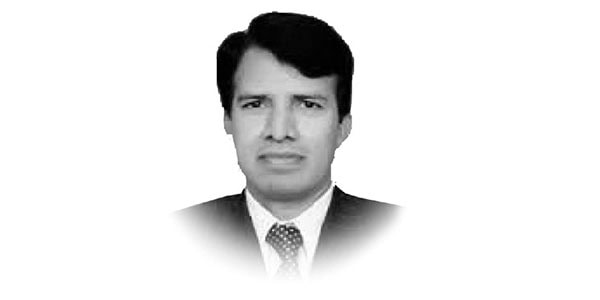After 75 years of Pakistani Independence
THE nation is celebrating its 75th Independence Day on 14 August 2022. Unfortunately, compared to past years today Pakistan is more vulnerable politically with economic fragility, domestic schism, social unrest and financial uncertainty.
Independence has broader meanings which include; the state of being free from any foreign occupation or slavery or else achievement of right of self-determination.
Independence is the blessing of the Almighty. It is in fact a value which grants sovereignty to our nation and gives us the freedom to live “according to our culture, customs and collective wisdom.
Independence attributes us with our basic human rights which are the right to live, freedom of movement, freedom of expression, right to do business, right to vote, right to contest election etc.”
The forefathers of the Pakistani nation paid a huge price and rendered unprecedented sacrifices for a separate homeland for the Muslims of South Asia in the form of Pakistan.
Sequel to War of Indian Independence-1857, the Muslim population of India was alienated by Colonial British rulers and the Hindu majority.
This deep sense of alienation, discrimination and humiliation compelled the Muslims to think for their separate identity and ultimately for a homeland of their own.
The Urdu-Hindi controversy-1867 was the first major event, which forced Muslim leaders like Sir Syed Ahmed Khan, a great advocate of Hindu-Muslim unity to take a different path and different course of action.
Hindus of Banaras demanded replacement of Urdu with Hindi and its Persian script with that of Devnagri script.
Despite his efforts for reconciliation with Hindu leadership, Sir Syed Ahmed Khan had to say, “When even the language of a nation is not safe at the hands of other nations in a region, it would be unwise to continue living with them.”
In the later years, Muslims felt estrangement and a continuous discrimination even at the platform of ‘Indian National Congress’ established to take care of political rights of native Indians.
Hindu leadership totally dominated this so-called liberal platform and used it for its political and socio-economic gains.
Establishment of All India Muslim League in 1906, the fourteen points of Quaid-i-Azam Muhammad Ali Jinnah-1929 and Allahabad Address of Allama Dr Muhammad Iqbal-1930, gave further impetus to establishment of a separate Muslim identity and a separate homeland for the Muslim of India.
Pakistan Resolution (Lahore Resolution-1940) was a decisive moment and a milestone which paved the way for a separate Muslim homeland and in later years, Pakistan became the destination of Indian Muslims, living all over the subcontinent.
Seven years after the Lahore Resolution, on 14 August 1947, Pakistan became a reality. This indeed was the consequence of hectic efforts of our forefathers and painful history of discrimination from Hindu and colonial rulers.
Today, after 75 years of independence, Pakistan is facing a number of challenges. These challenges being faced by the state and society of Pakistan are even more crucial, uncertain, hostile and dangerous than our forefathers faced during the crucial Pakistan Movement.
Indeed, the anti-Pakistan forces are exploiting the domestic instability and economic crisis of Pakistan for their vested interests.
These challenges are both internal and external, having intimate connections and linkages with foes of Pakistan.
The elements of extremism, radicalization and terrorism are only their tangible forms.
The old rivals of Pakistan are now regrouping in a number of new forms and formats.
The strategies these forces are adopting are very treacherous, aiming to destroy the very basis of the state and society of Pakistan.
These forces want to defeat and destroy the social filament and the ideology of the Pakistani nation.
The social structure and ideological bondage of Pakistani society is being shattered through the promotion of ethnicity, sectarianism and radicalization.
The past two decades have witnessed these tendencies in a more recurrent and rambling way.
These factors have damaged the traditional coherence and harmony that Pakistani society enjoyed for centuries.
Whereas, the rival forces could solely and gradually proliferate into the roots of the peaceful Pakistani society to create a fissure and exploit those subsequently, the political leadership, the religious scholars and intellectual and academics are found wanting in playing their desired role of maintaining the harmony and coherence in the society.
They could not develop a counter narrative against the quite visible strategies of the anti-Pakistan forces.
The Pakistani free media could neither conceive nor pursue a role it should have played for the promotion of national integration and social cohesiveness of the nation.
Rather, at times, it acted as a tool for furthering those narratives, which ultimately harmed national integration, deliberately or otherwise.
Through a number of military operations, the defence forces of Pakistan have destroyed the organized bases of militancy.
Nevertheless, after Taliban Rule in Afghanistan; TTP has frequently attacked the border posts of Pakistan along Pak-Afghan border and even inside Pakistan.
The security forces, especially Pak Army deserve a special appreciation for these achievements.
Since Pak Army and other security forces have played their part, there is a need that political forces, the religio-political groups, the religious scholars, the academia and Pakistani society must play their role in the consolidation of the gains, defence forces have attained through combating militancy and destroying their organized bases.
Upon completion of 75 years of our independence, the nation needs to be more responsible and aware towards its future and more prudent towards its social political outlook.
At this decisive moment of our history, let’s start reconciliation with an optimistic and rational approach for practising the golden principles of “unity, faith and discipline”.
In the absence of an astute and innovative leadership we lost these golden principles of Quaid-i-Azam.
Let’s reject all the internal fault-lines; ethnicity, factionalism, provincialism and sectarianism by becoming true Pakistani.
Let’s utilise all our energies for the promotion of unity, development of our nation through educational and technological excellence, social cohesion and national harmony.
— The writer is Professor of Politics and IR at International Islamic University, Islamabad.










